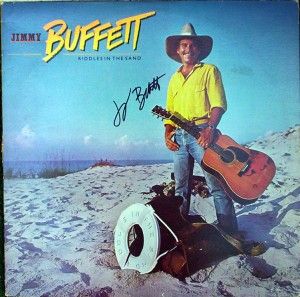Buffetting Life's Storms

The Hymns of Jimmy Buffett
I started listening to Jimmy Buffett songs when I was in law school. Though I was ambitiously studying hard so I could find work with a powerful law firm, I was drawn to Buffett's music because it celebrates a radically carefree lifestyle. As I later settled into my career as a lawyer, I increasingly enjoyed Buffett's music as I was increasingly wrapped in the world's snares.
The irony puzzled me. I've concluded that my attraction to Buffett's music stems from the need for detachment, a virtue Buffett counsels in his music--music that, for this reason, I refer to as "hymns."
The virtue of detachment is the rejection of the self-regarding cares that bounce us through life like a silverball in a pinball machine. If a person is detached, the cares and concerns of the world don't affect (attach to) him because he doesn't care about himself. The detached person doesn't care about the things that drive most people today: worldly status, money, security in the earth's riches. As a result, the detached person is often poorer in monetary riches, but, in compensation, he receives an ample appreciation of the earth's beauty as he sees the goodness of God's creation without distorting it through the lens of ego.
St. Francis of Assisi once said, “Blessed is he who expecteth nothing, for he shall enjoy everything.”
Chesterton expounded on these words in his biography of St. Francis, writing, "It is not only true that the less a man thinks of himself, the more he thinks of his good luck and of all the gifts of God. It is also true that he sees more of the things themselves when he sees more of their origin."
These words, and St. Francis' life, are lessons in detachment. Not surprisingly, Chesterton's analysis continues far beyond this point and explains how St. Francis' detachment blossomed into something yet richer and holier. But St. Francis' first step, as Chesterton recognized, was detachment.

Detachment is the lesson of Buffett's songs. His songs say, “Ignore the cares of the world.” It's the message that makes Jimmy Buffett's songs loved by everyone who hears them (except perhaps the seriously damned, the seriously holy, and the seriously musical). The songs speak to our nature, to our soul, as religious communication must.
Buffett's signature song “Margaritaville” recounts the daily life of the singer, a man whose day revolves around margaritas (a strong, tequila-based drink). The song rings with intense detachment, starting with its opening lines,
Nibblin' on sponge cake, watchin' the sun bake, strummin' my six string on my front porch swing. Don't know, stayed here all season, with nothing to show but this brand new tattoo.
The entire song echoes a similar, devil-may-care attitude.
Appreciating the song requires hearing the laid-back tune (Buffett started his career as a country singer, and his songs still have that easy twang). The tune brings home the attitude behind the lyrics. Together, the lyrics and tune resound in the soul, making the listener say, “That would be a better life. That's better than working fifty hours a week and trying to earn yet more money.”
Buffett's counsels are steeped in sloth and fleshy desires, and such things are poison to the true religious virtue of detachment (the detached man doesn't care for those things). Still, Buffett's better to hear than many preachers. Many preachers are as wrapped in the world's lures as any stockbroker, banker, or other businessman. Norman Vincent Peale, for instance, told the story about Miss Lou, a widow with no skills who started a home based candy business and became so successful that she was named Mississippi's Woman of the Year.
Peale asked rhetorically whether this great woman was somehow not hidden inside the feckless widow, humbly biding her time before bursting upon the Mississippi business scene like a meteor, and replied:
Certainly! It just hadn't been awakened. Who awakened it? She prayed, she worked, she believed. And Jesus brought forth the great woman who was in her all the time.
For Peale, the religious life translates into business success.
Buffett once sang about an old man who was wiling away his final days:
Now he lives in the islands, fishes the pilin's
And drinks his green label each day
He's writing his memoirs and losing his hearing
But he don't care what most people say.
Through eighty-six years of perpetual motion
If he likes you he'll smile then he'll say
Jimmy, some of it's magic, some of it's tragic
But I had a good life all the way.
You tell which one, Peale or Buffett, is closer to the religious life.

I graduated from law school almost ten years ago, took that job with a powerful law firm, but quickly reverted to the small-town practice of law. Now I'm in my thirties, working hard, raising children, lots of cares and lots of worries. Even though I understand the need for detachment and strive for it, every week brings another flood of concerns.
At times I pray. Sometimes I sit quietly or read a few lines of religious counsel. And sometimes I grab a beer and turn on Buffett. They all help me to recollect and step away from this jungle called the flesh and the world. Jimmy Buffett is no saint and his songs really ought not be called hymns. But he speaks to this struggling, half-baked sinner better than many preachers.
Previously published in Gilbert Magazine in 1999. I kept the copyright, and to the best of my knowledge, it's not available anywhere on the Web.
